PM Shehbaz’s aide says Pakistan crisis can end if Nawaz, Khan, Zardari, sit together
4 min readIf the leaders of Pakistan’s three major political parties—PTI, PML-N, and PPP—came together for discussions, the crisis that has plagued the country for 70 years could be resolved in just 70 days, Rana Sanaullah, the prime minister’s aide on political affairs, said on Saturday.
“If the three key leaders — former premier Nawaz Sharif, PTI founder Imran Khan and President Asif Ali Zardari — were included in the negotiation committee, and they have similar vision to what Nawaz had on his return last year, then the crisis that has surrounded Pakistan for 70 years can end in 70 days,” he said at a ceremony in Lahore.
Since Khan’s imprisonment last year on multiple charges, the relationship between the PTI and both the government and military establishment has soured significantly. The deterioration has been marked by protests that often turned violent amid government crackdowns.
In light of the unrest, Khan formed a five-member committee to engage in talks with “anyone,” indicating a change in the PTI’s parliamentary approach. In response, Prime Minister Shehbaz Sharif assembled a committee composed of ruling coalition members.
The first meeting between the government and PTI committees took place on Monday, marking the beginning of much-anticipated negotiations aimed at reducing political tensions in the country.
The PTI has set a January 31 deadline to finalise the negotiations. Earlier, Sanaullah indicated that the government would be willing to “accommodate such a request.”
“Nawaz Sharif’s name should be included, along with Imran Khan and Asif Ali Zardari,” he stated, highlighting the importance of their participation in the discussions.
Sanaullah urged politicians to come together for discussions, stressing the importance of acknowledging past mistakes before engaging in dialogue. He highlighted that acceptance of errors by those involved is crucial for constructive conversations.
The PM’s adviser pointed out that two significant political documents—the 1973 Constitution and the Charter of Democracy—serve as foundational texts for political discourse. He noted that in the Charter of Democracy, both PPP leader Benazir Bhutto and PML-N President Nawaz Sharif recognised their mistakes, paving the way for meaningful discussions.
While addressing the PTI’s claims of a stolen mandate, Sanaullah questioned why the party did not voice its concerns when it held power just the day before. “Only yesterday, you [PTI] had the mandate. Why did you not speak then?” he asked and urged accountability and transparency in the political dialogue.
The PML-N leader expressed a commitment to ensuring the success of ongoing negotiations, stating, “We want to make them successful with complete sincerity.” He emphasised that if “today’s grievances are to be acknowledged, then past issues must also be recognised.”
Former PML-N leader Shahid Khaqan Abbasi also put forward a similar suggestion in an interview with Spot Light with Munizae Jahangir that was aired on Aaj News on October 11, 2023.
“I name six people: Mian Nawaz Sharif, Imran Khan, Asif Ali Zardari, Maulana Fazlur Rehman, chief justice of Pakistan, and army chief,” he said. “They influence the politics of the country.”
At the same event, Defence Minister Khawaja Asif raised concerns over the PTI’s sudden interest in negotiations, noting that the party had previously refused to engage in talks with the PML-N for nearly two years.
Also, read this
PML-N doesn’t have mandate to make unilateral decisions: Bilawal
Jailed ex-PM Imran Khan claims he was offered ‘deal’ but refused it
No political leader’s ambition for power can surpass Pakistan’s interests: ISPR DG
Asif pointed out that the PTI had claimed the PML-N lacked authority, insisting they would only negotiate with those in power. “Why now? What has changed in the last 15 to 20 days that has led you to agree to negotiations?” he questioned.
He urged for clarity on the motivations behind this shift, asking, “Someone tell me what the secret behind this is?” While Asif expressed his support for negotiations, he cautioned that the government should remain vigilant in its dealings with Khan.
“I have a suggestion […] I think all the power centres should be part of the negotiations. This is not just the politicians’ problem,” he said and added that the country has power centres in the army, the bureaucracy, the politicians, the judiciary, media and big business.
“They should sit down and find a solution to the country’s problems,” he added.
Meanwhile, PTI Senator Shibli Faraz claimed that Khan was not seeking political advantage through current negotiations.
“Imran Khan is not negotiating to find political space,” he stated and added that Khan has made it clear he would not participate in any arrangement solely for his benefit. “He is in jail for the Pakistani people and stands firmly by his principles,” Faraz noted.
The senator mentioned that all levels of PTI membership are “being tested.” He revealed that Khan’s primary condition for negotiations was the release of jailed PTI workers, clarifying, “He has demanded their release, but he is fighting his own battle himself.”
For the latest news, follow us on Twitter @Aaj_Urdu. We are also on Facebook, Instagram and YouTube.














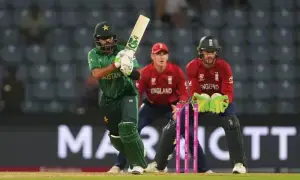
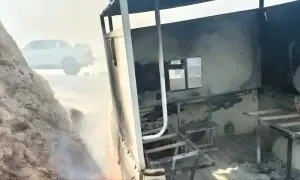
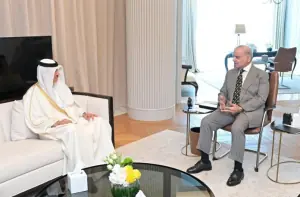
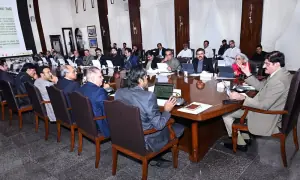
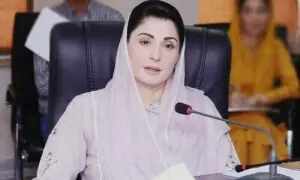

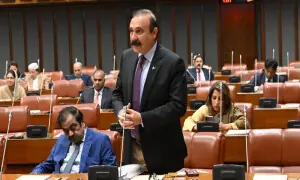
Comments are closed on this story.